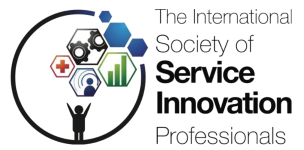Smart IoE-Based Services
The Internet of Everything (IoE) or Internet of Things (IoT) uses data collection systems to collect information from various sensors/entities and communicate with local and/or global service management systems. Some familiar examples include home appliances (e.g. smart refrigerator, smart home health monitoring systems) that are always connected to the Internet. In fact, according to McKinsey and Cisco’s ‘Internet of Things’ study, over fifty billion devices will be connected to the Internet by 2020. Or, put differently, more than six devices for every person on earth. This is merely the continuation of a recent trend. Since 2008, the number of devices connected to the Internet has already exceeded the number of humans on earth.
IoE-based Smart Services require that every managed entity can be identified with an address (e.g. IP Address). Similarly, advanced data collection and analytics, which is often based on vendor best practices and intellectual capital, results in information that can be used to predict the performance of services, and provides information about future trends or threats that enable service providers to take proactive action before problems occur.
The first step to advanced analytics, however, is that the right kind and quality of information is collected. An example for how input of such information for IoE-based services can be collected is the Simple Network Management Protocol (SNMP), as defined by the Internet Engineering Task Force (IETF) for essential FACPS (Fault, Accounting, Configuration, Performance, and Security) management. When SNMPdata is not sufficient, “syslog” and output of Command Line Interface (CLI) commands are also utilized. In fact, many network devices are configured to send syslog messages to an event collector, such as a syslog server, in response to specific events. The syslog protocol separates the content of a message from the transport of the message. In other words, the device sending the syslog message does not require any communication from the devices transporting or logging the message. This enables devices, which would otherwise be unable to communicate, to notify network administrators of problems. The syslog standard is documented in Request for Comments (RFC) 3164 and RFC 5424 of the IETF.
As IoE-based services are becoming increasingly smart through software analytics, the results provide critical value for customers. Such a proactive, predictive, and preemptive service experience, addresses the operations, health, performance, and security of the network. IoE-based services securely automate the collection of sensor devices, networks and operations information. The collected information is analyzed and correlated with the vendor’s vast repository of proprietary intellectual capital, turning it into actionable intelligence and aid network planners/administrators to increase IT value, simplify IT infrastructure, reduce cost, and streamline processes.
If you would like to know more about smart IoE-based services, contact Ammar Rayes directly at rayes@cisco.com
